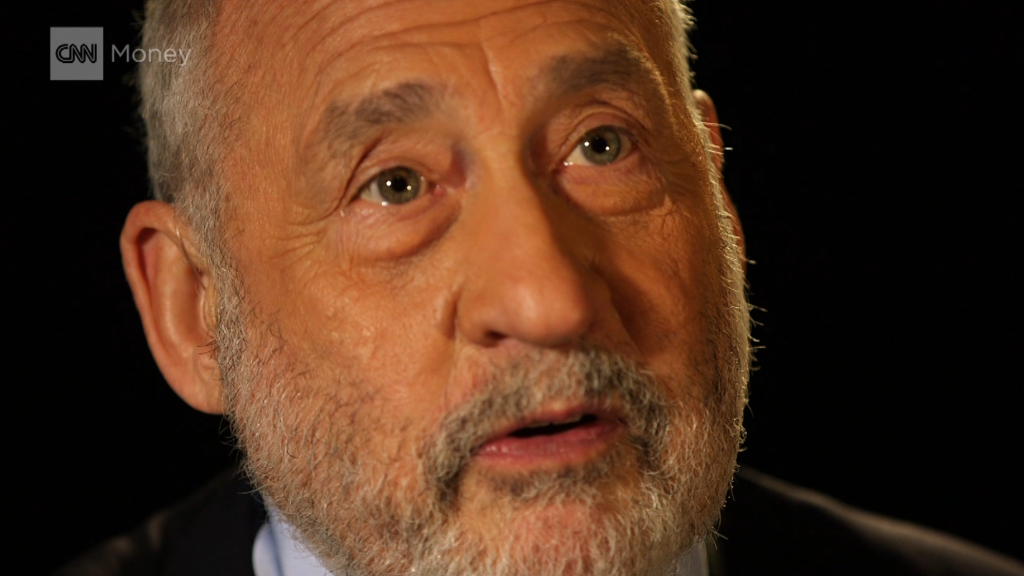
Income inequality is on the rise. The rich control more of the country's wealth. Union membership is falling. The ranks of the poor are growing.
Sounds like the United States? Actually, it's Denmark.
This tiny Scandinavian country has been in the spotlight in recent weeks. Bernie Sanders, who is running for president as a self-described social democrat, and Joseph Stiglitz, the Nobel-prize winning economist, have both pointed to Denmark as a model of equality and social welfare that the U.S. should follow.
To be sure, Denmark still has one of the lowest rates of inequality and highest rates of economic mobility among developed countries. Its citizens enjoy an expansive social safety net, which includes free college and health care, as well as subsidized child care. Denmark also ranks at or near the top in terms of global happiness.
To pay for all these benefits, Danes are more heavily taxed than Americans. In Denmark, total tax revenues is 49% of the size of the economy, compared to 25.4% in the U.S., according to the Organization for Economic Co-operation and Development. Danes pay a top tax rate of 56%, compared to 39.6% in the U.S.
Denmark, however, is contending with many of the same issues that are widening the income gap in the U.S. and other European countries. Wealthy Danes are benefiting from the boom in global stock markets in recent years. Educated citizens with mastery over the latest technology are commanding bigger salaries, while middle class manufacturing jobs are disappearing. The Danish government cut taxes for the rich, while curtailing public assistance for the poor, jobless and recent immigrants.
"There's more of a stigma on unemployment," said Kristian Weise, director of Cevea, a center-left think tank. "Danes generally support a big welfare state, but there is a growing feeling that people have to do more for themselves to get a job."
Here's how the gap is widening:
Denmark, along with Iceland, saw the largest increase in inequality in Europe -- rising 12% in each country between 2008 and 2012, according to Eurostat.
The Top 10% of Danes saw their incomes grow by 29% over the decade ending in 2013, while middle-income folks experienced only a 12.3% bump, according to the Economic Council of the Labour Movement, a left-leaning think tank, citing national statistics. The poorest Danes suffered a nearly 1% loss in income, a rare occurrence in a country where everyone's income usually rises.
When it comes to wealth, the Top 10% are collecting more of it, though official statistics are a little misleading because they don't include pension savings, which are spread out more evenly among the population. What the data shows is that the upper crust controlled nearly 80% of the nation's net worth in 2013, up from 65% in 2000, according to the council.
In the U.S., the Top 10% controlled nearly 78% of the wealth in 2013, according to Edward Wolff, an economics professor at New York University.
Fewer Danes are joining the three main trade unions that negotiate collective agreements, with membership falling to 60%, a 10 percentage points drop since the late 1990s. Still, participation in Denmark's unions is far higher than in the U.S. where the membership rate was just 11% in 2014.
And poverty in Denmark rose to just above 6% in 2013, compared to just above 3% in 1995.
While Sanders is trying to become the first social democrat in the White House, Denmark kicked its social democrats out of power in June. This may lead to cutbacks in the country's safety net. The country's new center-right leaders have already re-instituted a cut in social assistance for recent immigrants and they are looking to cap these benefits for everyone, Weise said. Instead, center-right officials have said they want to give more incentives to Danes to work.
Mobility is already being affected. In recent years, there's been a decline in the share of young adults from poorly educated families who go on to graduate from high school or college, said Jonas Schytz Juul, head of research for the economic council.
There are other consequences, too. Juul points to recent OECD and International Monetary Fund research that shows rising income inequality hurts economic growth. Also, the widening gap hurts social cohesion.
"You have to feel some sort of connection to make a welfare society work," said Juul. "If the gap between richest and poorest is getting wider, that system is challenged. You feel no connection to the people on the bottom."


